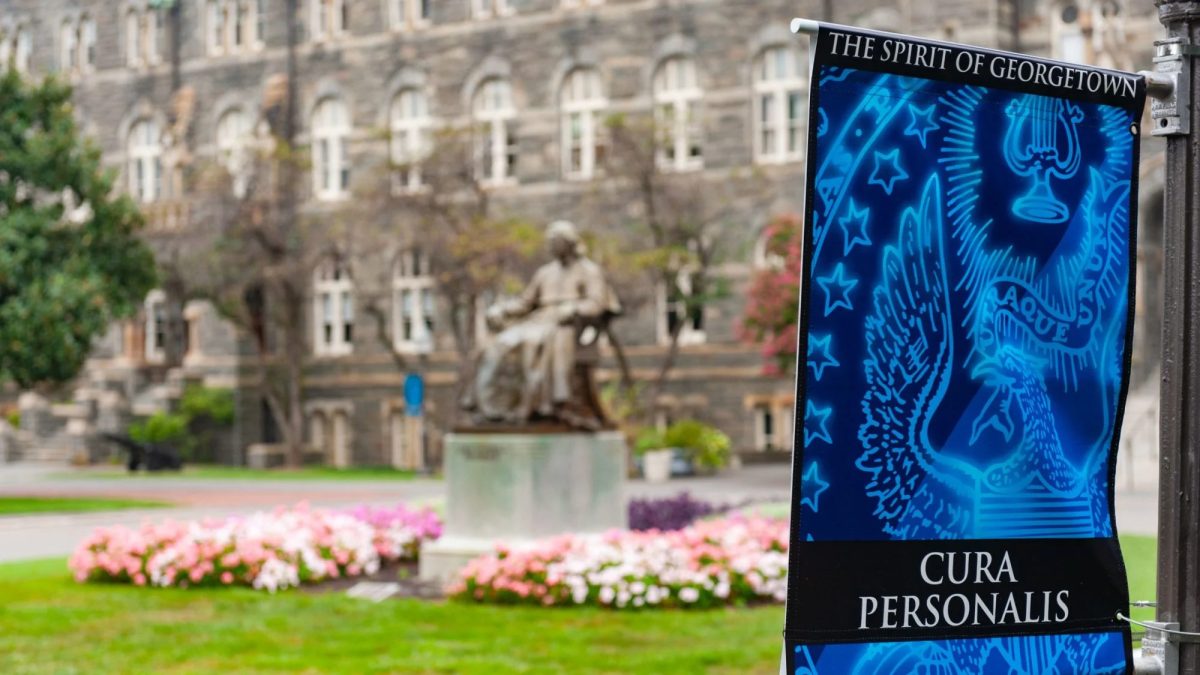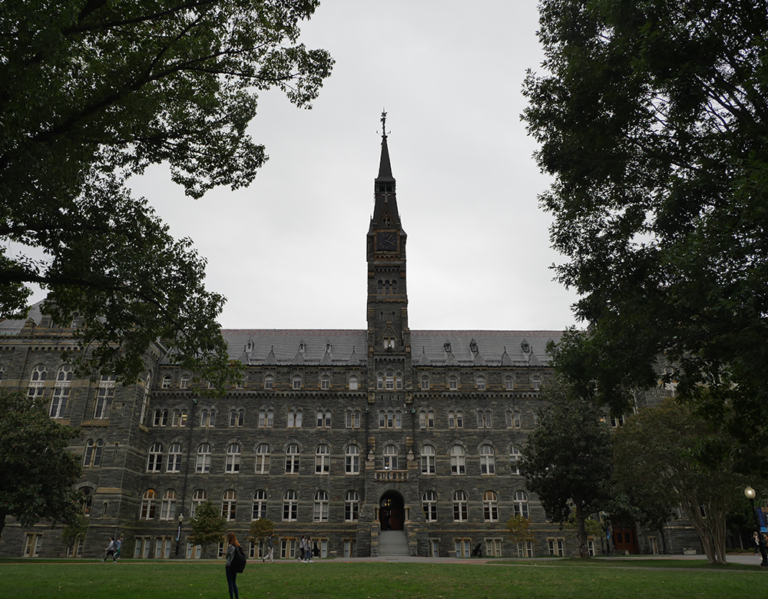Legislators and industry leaders gathered to examine the rapidly evolving healthcare policy landscape amid federally-instituted changes at the inaugural Health Next Summit hosted at the InterContinental Hotel on March 26.
During the summit, politicians from both parties and experts spoke about recent political developments in health care, including university research funding cuts by the National Institutes of Health (NIH), attempts by the U.S. Department of Government Efficiency to cut health care funding and the reorganization of the U.S. Department of Health and Human Services (HHS) under Secretary Robert F. Kennedy Jr. The new policies, namely a new cap on indirect costs in research, have impacted Georgetown University directly, affecting the university’s ability to sustain medical research.
Rep. Kim Schrier (D-Wash.) — a former practicing doctor whose state is home to several top research universities, including the University of Washington — said she talked to students who are disheartened by funding lapses for health research and are reconsidering their career paths.

“A lot of medical schools are not bringing in more M.D. and PhD students and fellows to do research because they have uncertainty about the future,” Schrier said at the summit. She later said, “Are they going to go overseas and let another country take advantage of their brilliance? This is an ‘America loses’ proposition to cut research.”
In the fiscal year 2024, the NIH awarded Georgetown 138 grants totaling nearly $58 million. This funding supported medical faculty research across disciplines and specialties.
Julia Litvin (CAS ’27), a student volunteer at the summit researching genetic implications in oncology diagnoses at the Lombardi Comprehensive Cancer Center, said she worries about how pre-medical students will fare following decreases in NIH funding.
“I fear decreased NIH funding and the elimination of research initiative could negatively affect future medical school admission for pre-med students at Georgetown and beyond,” Litvin told The Hoya.
Kathleen Sebelius, HHS secretary under former President Barack Obama, said the current administration’s funding cuts are a continuation of President Donald Trump’s history of politicizing health care and disease prevention during the COVID-19 pandemic.
“It was the first time ever in this country that a public health emergency has been used as a wedge issue and a partisan issue,” Sebelius said at the summit. “I was fortunate to work for a president who really believed in science and followed the science.”
Amid industry uncertainty, several speakers expressed optimism surrounding Kennedy’s “Make America Healthy Again” agenda, which aims to restructure HHS and address the root causes of healthcare shortcomings in the United States, including poor nutrition and chemical reliance in agriculture.
Will Keefe (SFS ’27) said he feels Kennedy’s agenda is well intended but lacks transparency and could prove to have adverse financial consequences, adding that food regulations could complicate food service at Georgetown.
“I understand the desire to make Americans healthier, but I worry that Kennedy’s efforts will not have the intended result,” Keefe told The Hoya. “Our dining staff at Georgetown already work so hard, to make them comply with new regulations would make their day-to-day life more difficult.”
Kennedy also has a longstanding record of disseminating anti-vaccine misinformation, though he distanced himself from these views at his U.S. Senate confirmation hearing.
Bobby Mukkamala, president-elect of the American Medical Association, the largest professional organization representing physicians in the United States, said he approves of Kennedy’s efforts to limit processed food consumption but remains concerned about his history of vaccine skepticism.
“Some of what he proposes is very reasonable, right? Nutrition, access to healthy foods,” Mukkamala said at the summit. “On the vaccination thing? No, we’re not going to agree.”
Abby Dunn (CAS ’28), said she would feel unsafe if the government were to waive vaccine requirements.
“If the government were to require universities to drop vaccine requirements, I would feel far less safe, especially looking at the current measles outbreak in Texas,” Dunn told The Hoya.
Kennedy’s changes at HHS come amid a significant measles outbreak in Texas. As of April 1, the Texas Department of State Health Services has confirmed 422 cases since late January, and exposure sites have included Texas State University and the University of Texas at San Antonio.
Litvin said the administration’s changes to health care and research policy have left many Georgetown students feeling uncertain, particularly those who wish to enter the health sciences.
“Ultimately, I think that a lot of campus feels like they are on shaky ground right now regarding their future career goals,” Litvin said. “But, the unease is particularly felt among students engaging in research.”


















